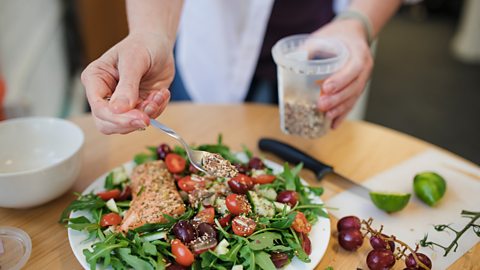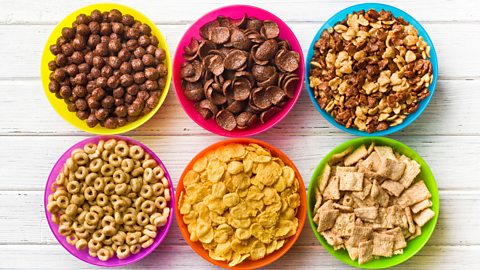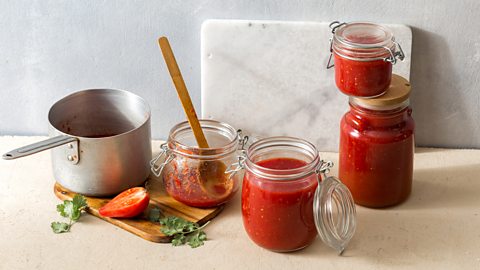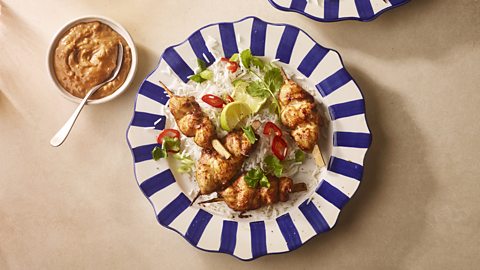The food myths my friends believe that drive me crazy
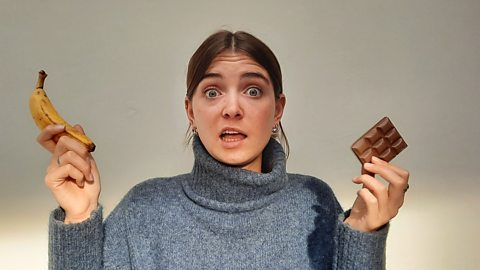
by Lottie Savage
Food myths are plentiful, and it’s unsurprising we get roped into believing them when they’re packaged up into interesting and relatable bitesize ‘facts’ on blogs and social media. I’m not referring to harmless myths, like carrots help you see in the dark or chocolate is an aphrodisiac. It’s the myths that have a bigger effect on our daily diet – and that often have a grain of truth to them – that seem to really take hold.
When did you last hear that natural sugars are healthy, that it’s important to drink protein shakes if you exercise, or that bloating means you’re almost certainly gluten-intolerant? I studied nutrition at uni, so most of the time I can separate fact from fiction (though I’m not judging – I’m renown for believing everything friends tell me). Here are the myths I hear most often…
‘Carbs are bad’
I’ve been hearing this one for years, usually from people trying to lose weight, but often from friends just wanting to follow a healthy diet. There’s even some confusion about which foods are actually carbs. One friend declined bread with her soup for lunch recently because she was avoiding carbs, but then picked up a fizzy drink! (We’ve all been there – a member of the BBC Food team says she announced as a teenager “I’m not eating carbs any more”… whilst eating a wrap! Ed.)
Carb control has many forms, whether it’s not eating them after a particular time of day, or ‘No carbs before Marbs’, a phrase coined by The Only Way is Essex, meaning no carbs in the days running up to a holiday or anywhere else a bikini might make an appearance.
Do we really have to put ourselves through this? Everything about the three main types of carbs – sugar, starch and fibre – varies massively, from how they interact with your body to how they release sugar and other nutrients.
Carbs are our main supply of energy. But it’s important to choose the ones that deliver other nutrients and fibre, including wholegrain carbs such as brown rice, bread and pasta and whole fruit and veg. Most of us don’t get the 30g of fibre per day recommended for adults by Public Health England. What’s all the fuss about fibre? It helps digestion and feeds the good bacteria living in the gut, so they can perform the multitude of functions that help your body.
‘Calories are all the same’
I’ve overheard many a conversation in which foods have been condensed down to their calorific content. Once foods become numbers, it seems people start to compare them. “It doesn’t make a difference if I eat a couple of cubes of milk chocolate or a banana if they’re the same number of calories”, I’ve heard.
If two people consume the same number of calories in a day, one eating nutritious foods, the other snacking on junk foods, the impact on their bodies will be very different.
Let’s take the chocolate and banana example. They might both add up to 90 calories, but the chocolate is likely to be high in fat, especially saturated fat which promotes an increase in cholesterol, and in sugar, which causes a blood-sugar spike followed by a crash that leaves you feeling hungry again. By comparison, the fibre in the banana helps to slow its release of sugar, allowing for a more gradual rise in blood sugar to leave you feel fuller for longer. Not to mention the extra vitamins and minerals in the banana.
It’s important to think about nutrients rather than just calories, and to avoid calorie counting, which can have a negative impact on your relationship with food.
‘Natural sugar alternatives are healthy’
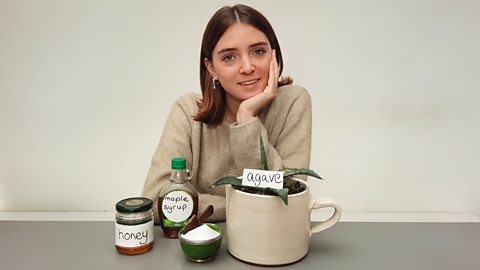
Who doesn’t love a sweet treat? We all know eating too much sugar is bad for us, so it’s not surprising we convince ourselves natural sugar alternatives are healthy. “I put honey in my tea instead of refined sugar because it’s natural, so it’s better for me”, a friend told me. But the body still sees it as sugar.
Agave syrup and maple syrup also often pop up in friends’ cupboards. Someone recently asked me if I had honey or agave syrup they could borrow, and when I said no, they asked for brown sugar instead. But brown sugar is made by adding molasses to white sugar.
Some natural sugar alternatives may contain a couple more micronutrients than refined sugar, but they’re in such tiny quantities that there is little difference between them. They are still sugar
The problem kicks in with breakfast cereals too. Honey often features high in the ingredients list for granola and cereal bars, yet they’re sold as a healthy option.
The World Health Organisation recommends we limit our added sugar intake to below five percent of our recommended energy intake. That’s 6-7 teaspoons of added sugar per day, including what’s in fruit juices and readymade products. So it’s important to keep an eye on those labels.
‘You won’t get enough protein on a vegetarian diet’
I’ve often been offered a sneaky chicken nugget after a few drinks. “Surely you don’t get enough protein in your diet if you don’t eat meat or fish”, friends say. When I went vegan for a while, the advice went through the roof!
But most vegetarians do get enough protein from foods such as dairy, eggs, pulses and nuts. It’s good to include a range of these sources in your diet, to ensure you get all the different proteins needed to build and repair cells. Proteins are made up of amino acids and there are nine the body can’t make, so they have to come from our diet. Animal protein sources, including dairy and eggs, contain all these amino acids, whereas plant sources don’t have the full set, so we pair them up into complementary proteins to provide them all. The famous coupling of beans on toast is a good example of this.
But there are some micronutrients you are more likely to lack on a vegetarian diet, including vitamin B12 and iron. There are plenty of other places to find these two nutrients though – you can get B12 from milk and fortified breakfast cereals and iron from pulses and dark green vegetables. Maybe throw some kale on top of those beans on toast!
‘Eating a healthy diet is expensive’
It’s no myth that eating a healthy diet can be pricey, but it doesn’t have to be. I meet lots of people who blow their weekly food budget on ‘healthy’ readymeals and special ingredients such as vegan meat alternatives. Sometimes it helps to go back to basics, for example buying oats (to whip up into a cheap and cheerful morning porridge) instead of breakfast cereals, which are often full of sugar.
Fruit and veg can be cheap – especially if you buy them frozen. Frozen spinach is my favourite, and you don’t get the disappointment of a big bag of fresh spinach wilting down to a tiny bundle.
Tins of beans and legumes add cheap protein and fibre to a meal – swap meat for chickpeas in a curry or stew. Wholegrain foods cost little or no more than their refined alternatives too.
‘Freefrom products are always healthier’
“I’ll buy the freefrom biscuits, they’re healthier because they don’t contain milk or wheat”, I hear. Or “I’m getting the gluten-free pasta, as I’m avoiding gluten at the moment”, from people who have no issues with digestion. It’s understandable many people think of wheat and milk in a bad light, when a section of the supermarket is devoted to freefrom foods sold in green, natural-looking packaging, with a few plant graphics thrown in for good measure. It can lead us to think foods free-from wheat, gluten or milk must be healthier. But for most of us this is not true.
Gluten is a protein found in wheat, and has picked up a bad rep. For people with a gluten intolerance – or for those with coeliac disease (an autoimmune disease) – it is the enemy, there to sabotage your well-being. Likewise, for those with a lactose intolerance it’s important to avoid milk, as lactose is the main sugar in milk. If you think you might have a food intolerance, allergy or autoimmune disease, it’s best to get checked out by your GP rather than putting your faith in an online test.
Lottie Savage graduated with a BSc in Nutrition from the University of Leeds in 2020.
